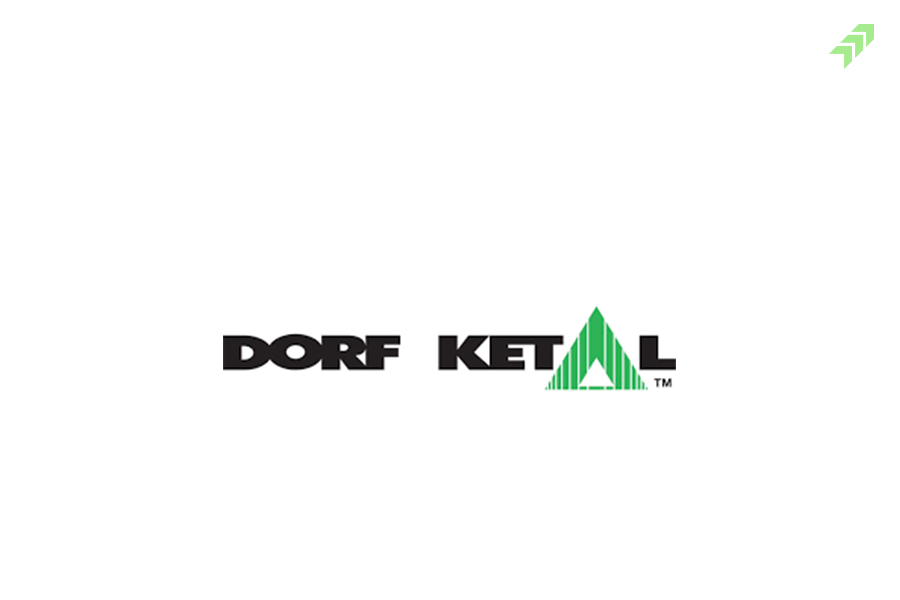Best Options Trading for Beginners
What is the best way to attract the highest return from the stock market? Most seasoned investors will surely answer "Options trading" in response to such queries. After all, Options trading is the most versatile instrument of the financial market – of course, they are notorious for being too risky and can eat up your entire investment capital in a blink. But if you understand the fundamentals of risk management, and have great control over your mind and emotions, options can surely yield 10x of your investment.
If you are a beginner and have an ambition of trying luck in options trading, we recommend holding on! There are certain basic rules of option trading necessary to learn by every beginner before commencing their first trade.
What is Options Trading?
Options Trading isn't different than trading an instrument in an investment market. It also involves the Buy/Sell of securities. Just as you trade stocks, you trade options. But there's a twist.
Compared to other stocks that have their value in the stock market, options don't have their value. The instruments exclusively rely on other securities in the stock market.
Options are a tradeable contract that gives the option buyer the right to buy or sell a security at a certain price. To purchase this right, the option buyer pays a premium to the option sellers.
Here it's worth noting that options trade doesn't invest directly in securities because option pricing and value are subjected to assumptions.
Whether an asset price will go up or fall below a certain level on a particular date or time in the future. In a nutshell, both option buyer and seller are investing in an assumption.
Those whose assumption wins, attract massive profits in their wallet. But those who don't utilize stop-loss (an option to limit loss in loss-making trades on broking platforms) can lose their entire investment capital.
Before getting into the depth of Options Trading, let's understand the role of "Option Buyer" and "Option Seller".
Option Buyer:
Option Buying is recommended to beginners because it is less risky compared to option selling. But it even remains the one-n-only option when you have limited investment capital.
As an options trader, you have the power of leveraging. Simply, with limited capital, one can make a big bet and trade options in the market.
There's no limit on how much an option buyer can make from the market but the probability of making money is less than 50% depending on how strong your fundamental and technical analysis of the original assets is.
Time decay is always against an option buyer, as a result, the more you wait for an option price to move to a desired point the faster your invested amount will shrink.
Option Seller (Option Writer):
The opposite of option buyer is option seller (also called option writer). Compared to options buyers, these traders are risk-taking players. They bet on an unlimited risk but their probability of making profits from the options trade is 67%.
The option writer only pays a margin of money (which is way higher than the premium paid by the option buyer). Their job is to simply predict the price of the real market or stock behind an Options Trade and bid on price on a belief that the market will not go above or below that particular price.
The loss and win of the option buyer and option seller are apparent through the breakeven point which is indeed a particular price point where the option buyer starts to make money and the option seller starts to lose money.
Interestingly, in both Option buying and Option selling, you could be a buyer or seller.
Now that you have learned the role of Option Buyer and Option Seller separately. It's time to learn some other basic terms of options trading.
Important Terms of Option Trading:
1. Option Types
Options are further split into two sections, one is “call” options and the second is “put” options.
a) Calls
Call Options refer to a contract that gives options traders the right to purchase a stock at a certain time.
b) Puts
Put options refer to a contract that gives an options trader the right to sell a stock at a certain time.
2. Premium
Premium refers to the price to purchase an option. The value of the premium is however unspecified and is exclusively driven by the underlying security's price.
3.Expiration Date
Every option trader must keep in mind that all options have an expiry date. As a result, options trader is allowed to bid on an option on a day, week, or monthly basis. The price of an option will go to zero on the expiry date so consider closing your position before the expiry date.
4. Lot
The number of contracts contained in one derivate security is referred to as Lot. For example – the lot for one option contract is 100 shares. Therefore, options traders buy or sell options in the lot.
5. Strike Price or Exercise Price
Strike price refers to a price in options trading at which you choose to buy or sell an option.
Apart from these, there are some additional terms of options trading you will come across as you progress to pro-level option trading. But as a beginner, these are the most important terms you must have in your mind.
How does Option Trading Work? How You will Buy or Sell Options?
Now jump straight to the practical understanding. How will I buy or sell options? This is the query that most of you might be having in your mind right now. So let's simplify it.
Forget about Option Selling (Option writer) for a while. Suppose you are entering the options market for Option Buying.
Going ahead, you will be bidding on an option trade by either selecting Call Option or selecting Put Options.
You select Call when you are confirmed that the price of the underlying asset will go up and similarly buy the right to purchase the underlying asset from the Options Seller.
Similarly, you select Put if you are believing that the price of the underlying asset will fall below a certain price point and similarly buy the right to sell the underlying asset from the Option seller (also called option writer).
Let’s understand through some examples now -
Call Option: An Example
Manoj, the call option buyer, believed that the Nifty will rise in the future, and paid to purchase 1 lot of Nifty from Option Seller with an assumption that it will cross 18000. Rather than paying a complete amount, he pays just a premium of Rs100 which binds the option seller to a contract. On the date of expiry, if Nifty crosses 18000, the option buyer will make profits. But in case the price doesn't cross the 18000 predictive values, the Option buyer's investment will become zero.
Put Option: An Example
In the second scenario, Manoj – the put option buyer believes that the Bank Nifty will fall in the future. He purchases 1 lot of Bank Nifty 41000 put from Option Seller with an assumption that it will go down from the 41000 levels. But instead of selling future, he pays just a premium of Rs100 which binds the option seller to a contract. On the date of expiry, if the Bank Nifty goes down from the 41000 price point, Manoj will make a profit otherwise he will lose the Rs100 premium amount entirely.
In the money, At the Money, and Out of the Money
Premium value against the strike price of an underlying asset tends to change. Therefore, as an options trader, you must have your premium studied well before trading. Here's what it means –
In the Money – It denotes a premium price that has already been used by options traders in the market and is generally expensive. However, the risk of loss is less.
At the Money – It denotes a current premium price which is average cheaper to purchase. The win and loss probability are however 1:1.
Out of the Money – It denotes a premium price that’s far from the At the Money Premium and can also be said a price that’s far from the strike price of an underlying asset. They are usually cheaper but entail risk because there's less probability that the premium will cross that level.
How to Trade Options? Explained in Steps
Let's step into the real world and have an overview of what your journey will look like as an options trader -
1. Start By Opening Trading Account
Your journey starts by opening a trading account with us. Account opening hardly takes a few minutes in today's time. But make sure you are fully sorted in your mind so that your investment capital can be wiped out in the blink of an eye. You will lose only what you invest but there's no limitation on profits. Once you have made up your mind, head to the stockbroker.
You can trade online through your mobile by downloading our app also. But make sure charges aren't too high else your losses can be converted into massive losses and profits can be too little to digest. Check our pricing plans here
Get the login ID to your trading account and start the journey. We recommend first trying some paper trading to learn the whole math of options trading and implementation
Pick Options to Buy or Sell
Upon successfully registration, you can pick options you want to Buy or Sell. It could be an option contract of a company itself or a group of companies like NIFTY50 or Banknifty or stocks i.e Reliance. Make sure you have added funds to your trading account. Initially, we recommend starting by purchasing 1 lot only. Multiple lots may require extensive capital which isn't recommended for a beginner.
2. Predict the Option Strike Price
Take the Help of technical tools, e.g., charts for technical analysis of the company, especially to predict the price movement of the underlying stock. You can even take the help of a fundamental analysis of the company. Such as, whether the company is in loss or profit, you can better understand it through the balance sheet and P&L statement of the underlying company.
Based on the price prediction, you can then decide the premium value for the options contract. You can purchase an option by paying a premium value (whichever is shown at that time). If you think that the price of an underlying stock will go up, purchase Call Option. If you think that the price of the underlying stock will go down, purchase Put Option.
3. Put Stop Loss & Take Profit
No matter whether you have placed your order for Put Option or Call Option, your stop loss and take profit must be available in the place. Stop loss will prevent your loss-making trade from converting into a big loss similarly taking profit is a function that helps you secure profits as soon as a stock price hits that desired price taking your premium value up or down, depending on whether you have placed a put order or call order.
4. Trade in Discipline
The most important thing is discipline. Almost 99% of options traders make one of the silliest mistakes. Trading should be done in discipline. You should have one great strategy and your entire focus must be on it. Your psychology should be strong. Mental preparation is necessary for options trading because there are quicker returns, and the possibility of quick losses is also available there. Remember, you will not win every day. There will be a time when you can put your entire investment capital at risk. So if any worse day isn't in your favor, skip trade for that.
Conclusion
In the end, you are prepared to rock as an options trader. Still, it is just the basic strategies and overall techniques that will help you become a pro-level trader that is yet to be discussed. Till then, strengthen your fundamentals.


















9 Comments
[…] Also Read: Options Trading for Beginners […]
[…] Also Read: Options Trading for Beginners […]
[…] Also Read: Options Trading for Beginners […]
[…] Also Read: Options Trading: How it Works, Example & How to Trade […]
[…] a profit in the bullish market is easier, as you can buy any stock or during the Future & Options Trading to get high returns. But how you can make profits in the bearish market, here you can do short […]
[…] Also Read: Options Trading: How it Works, Example & How to Trade […]
[…] Also Read: Options Trading: How it Works, Example & How to Trade […]
[…] the option trading when any option is bought to unwind the long position it is called the unwinding of the option […]
[…] Also Read: Options Trading: How it Works, Example & How to Trade […]